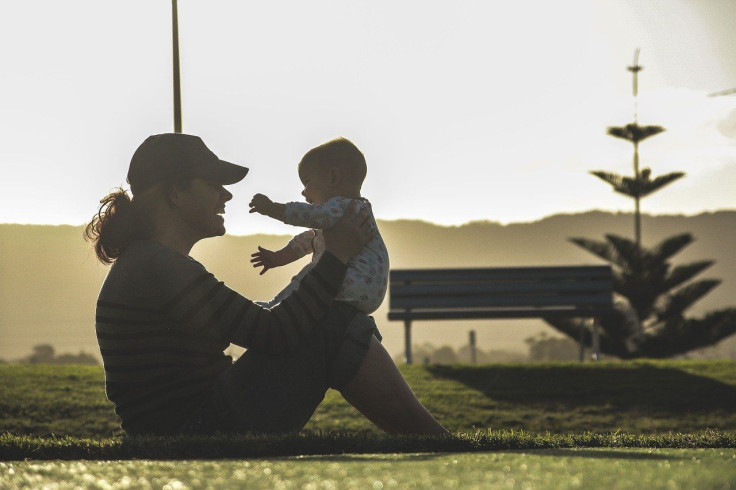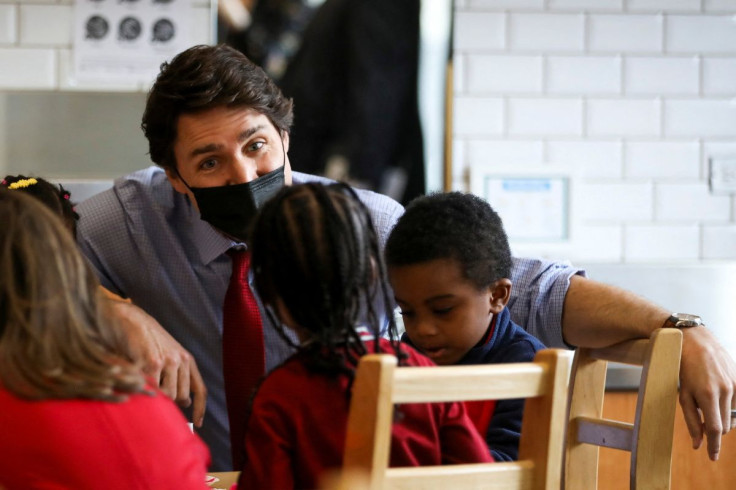5 Best Countries For Working Parents: US Is Not On The List, But Canada Is

KEY POINTS
- The five countries have higher female labor force participation rates than the average of OECD member countries
- Estonia is subsidizing childcare facilities and its education system
- Canada pledged up to $22 billion over five years to reduce the high cost of early childhood care
Five countries have been identified by a new report as the best in the world for working parents.
Bloomberg examined countries' childcare policies and found that Iceland, New Zealand, Estonia, Canada and Germany were the standouts in terms of policies that ease the financial burden on working parents.
The report said these countries have favorable policies for working parents and spend heavily on the childcare system. These have resulted in higher female workforce participation, according to the publication.
The five countries had higher female labor force participation rates than the average of member countries of the Organization for Economic Cooperation and Development (OECD) in 2021. Iceland led the pack with 82.2%, followed by New Zealand with 77.5%, Estonia with 76.8%, Canada with 75.6%, and Germany with 74.6%. The OECD average was 64.8%.
Here are the reasons why the five countries are being praised for their policies favorable to working parents.
Iceland
The report noted that Iceland offers the best childcare policies among Nordic countries and is second only to Luxembourg among rich countries in a UNICEF childcare ranking.
According to 2017 data, Iceland spent 1.8% of its gross domestic product on early childhood education and care, which is more than double the average of other countries in the OECD.
Iceland has also topped the World Economic Forum's index for gender equality since 2010.
Estonia
Every Estonian child from the age of 18 months to 7 years old has a guaranteed spot at a daycare facility, costing parents a maximum of 20% of their minimum wage, Bloomberg noted. The childcare facilities are also integrated into the larger Estonian education system, which is both subsidized and managed by the government.
Despite its investments in childhood education, Estonia is still one of the OECD member-states with the highest gender pay gaps.
Germany
Germany is one of the rich countries leading in UNICEF's childcare ranking.
All German children of qualifying age are legally entitled to "kita," a collective term for various forms of childcare in Germany including nurseries, preschools and after-school care. Activities in a kita could include language lessons, gymnastics, and peaceful conflict resolution sessions.
However, the kita system is not immune to issues, as German parents are having difficulty getting their children a spot in the system.
Canada
In 2021, Canada pledged up to $22 billion over five years to reduce the high cost of early childhood care.
Canada is also looking to roll out a national childcare subsidy program that was inspired by a similar program in Quebec, where subsidies to some providers allow them to offer childcare as low as $6.50 a day.
Quebec's childcare system also contributed to improved female labor force participation rate since it started over two decades ago.
New Zealand
New Zealand has some of the highest-quality early-years education in the world, according to UNICEF. The country has implemented a mandatory curriculum for licensed childcare providers focusing on empowerment and community.
New Zealand's gender equality has also been the most progressive globally. The country ranked first on PricewaterhouseCoopers' Women in Work Index, and its female board representation rate is among the highest among OECD member states at around 42%.
But New Zealand's childcare system is one of the most expensive in the OECD, despite the government's assistance to lower-income parents.
On the other hand, the U.S., which is the neighbor of one of the best working parent-friendly countries, failed to be included in Bloomberg's list. The U.S. spends only 0.3% of its gross domestic product on early education and childcare, according to an OECD report.
According to a study by Ohio State University researchers in 2022, around 66% of working parents in the U.S. suffer from parental burnout.
Dr. Marianne Cooper, a Stanford University sociologist, explained that stress from work leads to parents becoming less attentive to their children.

© Copyright IBTimes 2024. All rights reserved.






















